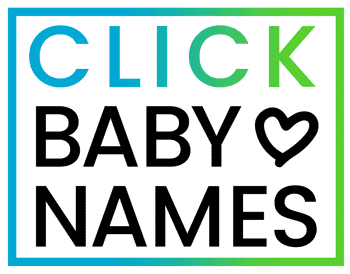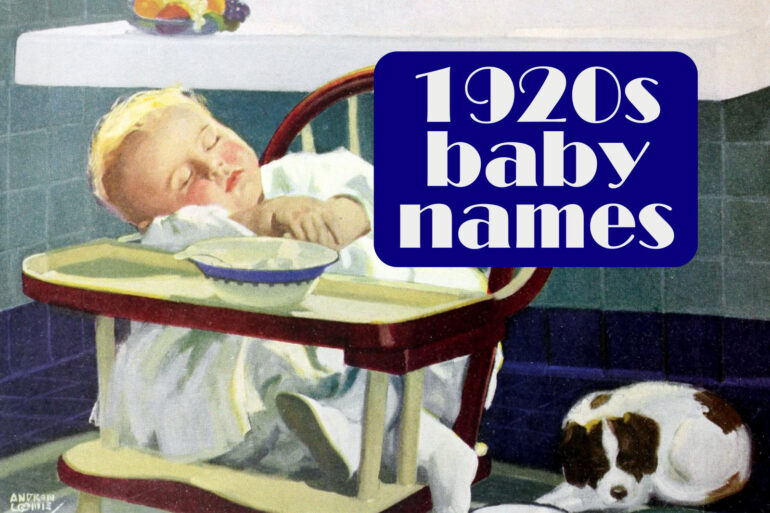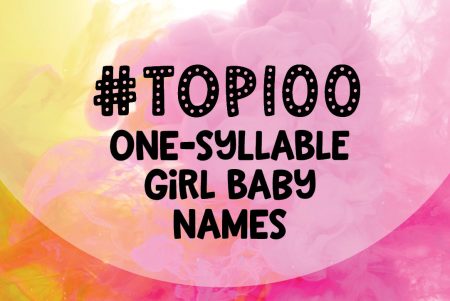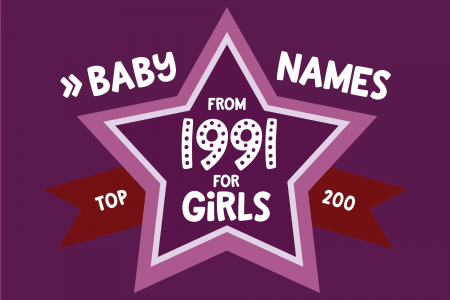Discover timeless names from the Roaring Twenties
If you’re expecting a new addition to your family, congratulations! One of the most exciting parts of the journey ahead is picking out the perfect name for your baby. You might be contemplating current popular names, or perhaps you’re looking for something a bit more unique.
How about taking a trip back in time? The best 1920s baby names often exude a classic, timeless feel, combining elegance with a touch of nostalgia. Let’s dive into some popular choices from this bygone era that might just be the perfect fit for your little one.
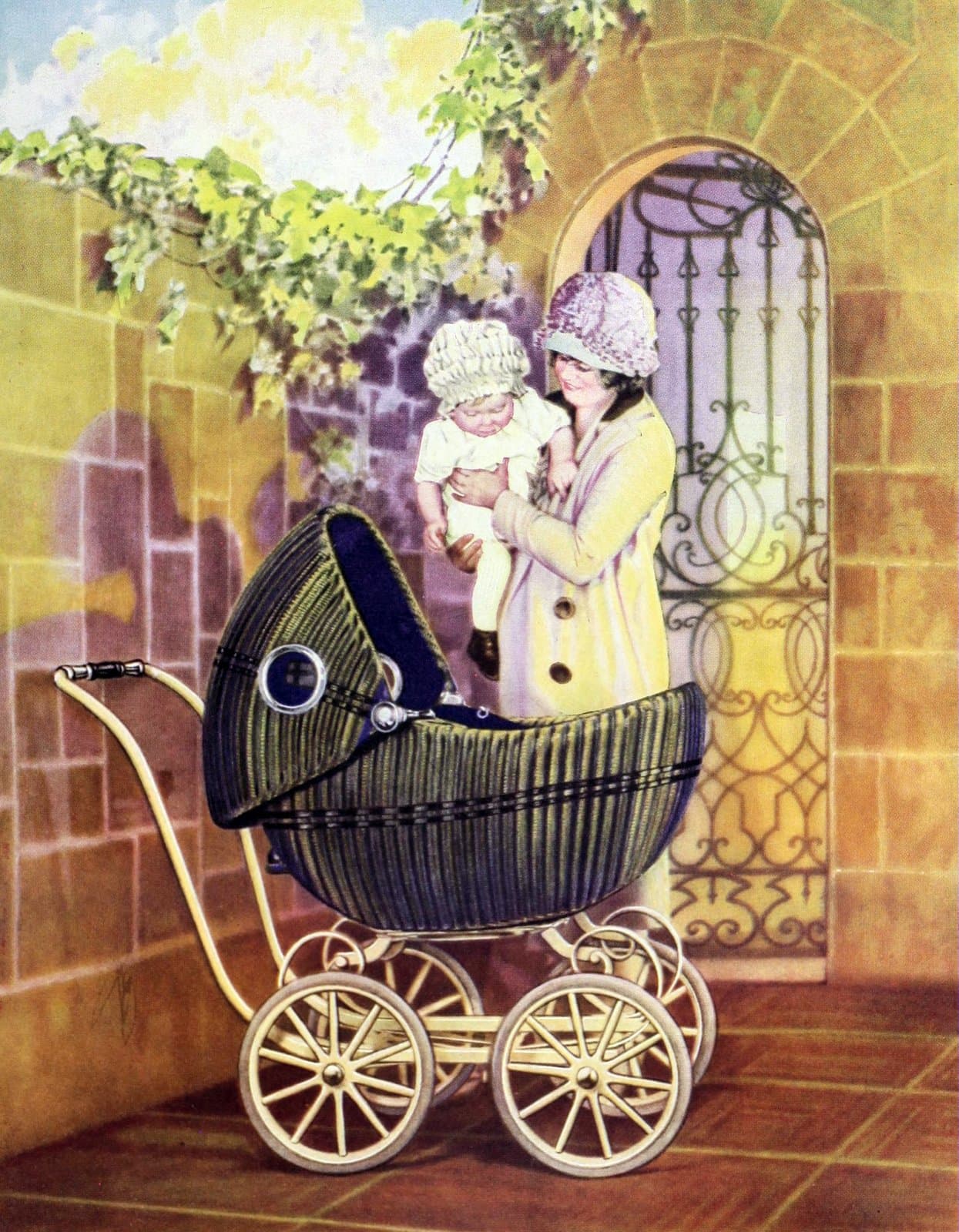
1920s names that have withstood the test of time
While some names are trendy for a few years, there are those that never seem to fade away. The 1920s were a decade of great change and innovation, and this is reflected in the names that were popular at the time. Consider names like:
1920s boy names
- Robert: A strong classic, seen everywhere from business magnates to popular actors.
- James: A regal and classic name, also popular among celebrities like James Dean and James Brown.
1920s girl names
- Mary: Forever timeless, a name that’s shared by queens and notable public figures.
- Helen: A name imbued with classic elegance, reminiscent of iconic actress Helen Mirren.
These names have not only remained relevant, but have also been embraced by new generations.
DON’T MISS THIS: Names of generations: Your ultimate guide
Jazz Age-inspired 1920s baby names & more
The 1920s were known as the Jazz Age, a time when jazz music and dance took the nation by storm. If you’re a music aficionado or simply love the vivacity of this era, you might consider names that reflect this age.
In addition, the 1920s was a decade filled with influential cultural figures in literature, film, and other forms of entertainment. You might consider naming your baby after some of these iconic personalities or characters from the Roaring Twenties.
1920s boy names inspired by art & culture
- Buster (as in Buster Keaton) – A well-known comedian and film actor.
- Charlie (Charlie Chaplin/Charles) – Iconic actor and filmmaker.
- Clark (Clark Gable) – Although he rose to fame in the 1930s, his career began in the late ’20s.
- Duke (Duke Ellington) – Legendary jazz musician.
- Ernest (Ernest Hemingway) – A major literary figure of the time.
- Jay (Jay Gatsby) – Inspired by the enigmatic fictional millionaire from “The Great Gatsby.”
- Langston (Langston Hughes) – A leading figure of the Harlem Renaissance, known for his contributions to literature and poetry.
- Lou (Lou Gehrig) – Famous baseball player of the era.
- Rudy (Rudolph Valentino) – A silent film actor who was a major sex symbol of the era.
- Satchmo (Louis Armstrong) – Another name for Louis Armstrong, a prominent jazz musician.
- Scott (F. Scott Fitzgerald) – Author of “The Great Gatsby,” this name has a literary flair.
1920s girl names inspired by art & culture
- Bessie (Bessie Smith) – Influential blues singer.
- Billie (Billie Holiday) – Though she gained prominence in the 1930s, her influence is rooted in the jazz and blues of the late 1920s.
- Clara (Clara Bow) – Known as the “It” girl, she was a major box office draw in the ’20s.
- Coco (Coco Chanel) – The fashion designer who defined 1920s style.
- Daisy (Daisy Buchanan) – A name filled with the allure and charm of Daisy Buchanan from “The Great Gatsby.”
- Dorothy (Dorothy Parker) – A writer and wit, famous for her sharp tongue.
- Ella (Ella Fitzgerald) – Inspired by the renowned jazz singer.
- Gloria (Gloria Swanson) – A leading lady in silent films during the 1920s.
- Josephine (Josephine Baker) – An American-born entertainer who found fame in France, known for her singing, dancing, and acting.
- Louise (Louise Brooks) – A film actress and dancer famous for popularizing the bob haircut.
- Mae (Mae West) – Although most famous in the ’30s, she started her career in vaudeville and on the stage in the ’20s.
- Zelda (Zelda Fitzgerald) – A name with literary and historical resonance, as she was the wife of F. Scott Fitzgerald.
1920s names for all
- Jordan: This gender-neutral name gained popularity in the 1920s, and remains a strong choice today. It’s a name found in “The Great Gatsby,” representing the complexities and ambitions of the era.
These names not only harken back to the 1920s but also carry with them the spirit and innovation of the era. From literature to music to film, these figures left an indelible mark on American culture. Naming your child after one of them could give your baby’s name a touch of historical and cultural significance.
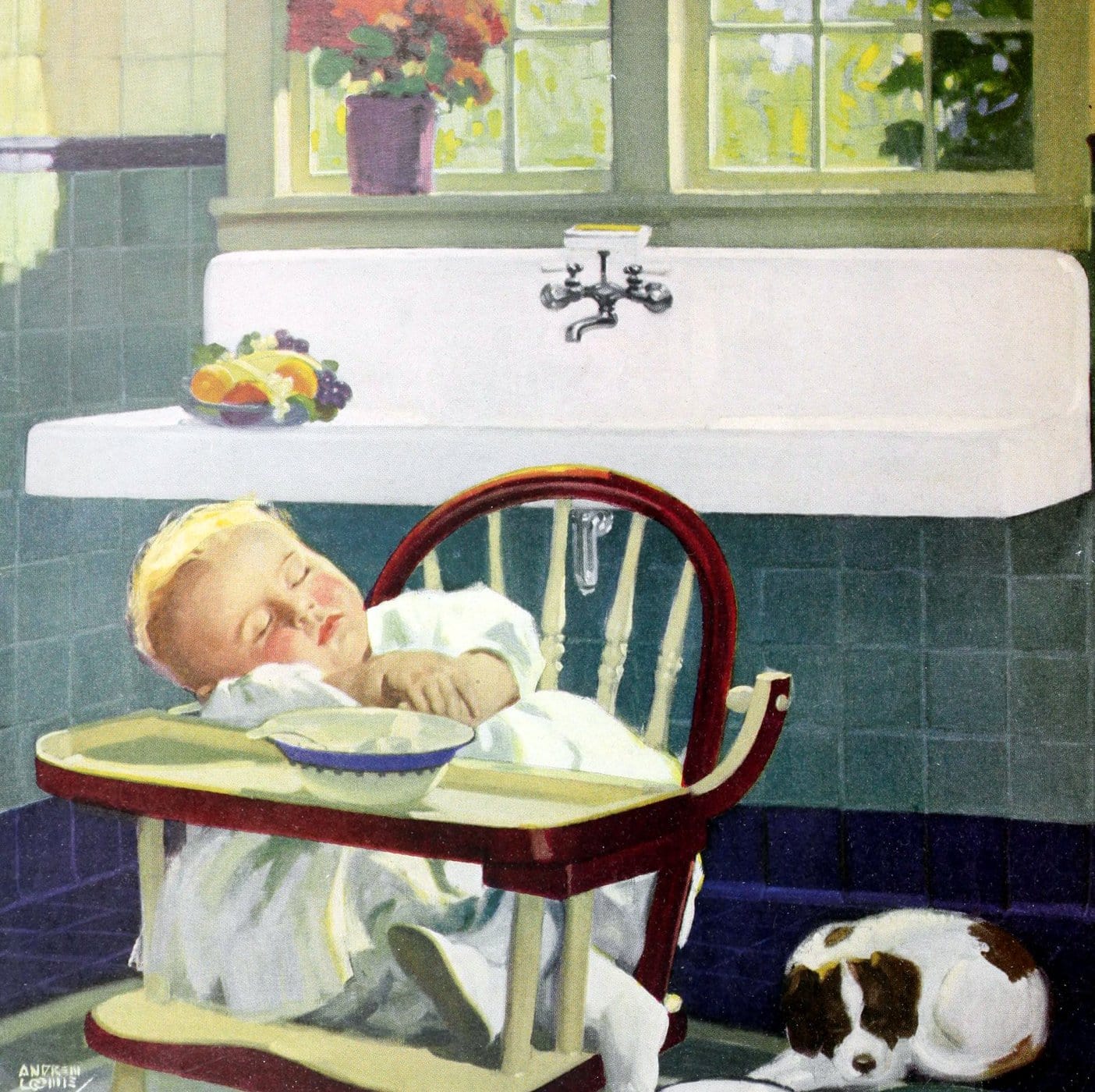
List: Top 100 1920s names for girls
Here’s a list of top 100 1920s girl names, along with their pronunciations and brief meanings or origins. The names are organized alphabetically for easy reference.
- Alice (AL-iss) – Of Germanic origin, meaning “noble.”
- Anna (AH-nuh) – Hebrew origin, meaning “grace.”
- Barbara (BAR-bruh) – Of Greek origin, meaning “foreign woman.”
- Beatrice (BEE-uh-triss) – Latin origin, meaning “bringer of joy.”
- Bernice (bur-NEES) – Greek origin, meaning “bringer of victory.”
- Betty (BET-ee) – Diminutive of Elizabeth, Hebrew origin, meaning “God is my oath.”
- Beverly (BEV-er-lee) – Old English origin, meaning “beaver stream.”
- Blanche (blanch) – French origin, meaning “white, fair.”
- Carol (KAR-ul) – Of Old French origin, meaning “song.”
- Catherine (KATH-rin) – Greek origin, meaning “pure.”
- Clara (KLAH-ruh) – Latin origin, meaning “clear, bright.”
- Constance (KAHN-stuhns) – Latin origin, meaning “constant, steadfast.”
- Cynthia (SIN-thee-uh) – Greek origin, meaning “from Mount Cynthus.”
- Daisy (DAY-zee) – Old English origin, from the daisy flower.
- Dolores (duh-LOHR-ess) – Spanish origin, meaning “sorrows.”
- Donna (DAW-nuh) – Italian origin, meaning “lady.”
- Doris (DOR-is) – Greek origin, meaning “gift.”
- Dorothy (DOR-uh-thee) – Greek origin, meaning “gift of God.”
- Edith (EE-dith) – Old English origin, meaning “prosperous in war.”
- Eleanor (EL-eh-nor) – Old French origin, meaning “shining light.”
- Elizabeth (ih-LIZ-uh-beth) – Hebrew origin, meaning “God is my oath.”
- Ella (EL-uh) – Germanic origin, meaning “all, completely; fairy maiden.”
- Ellen (EL-len) – Greek origin, meaning “bright, shining light.”
- Elsie (EL-see) – Scottish origin, diminutive of Elizabeth, meaning “God is my oath.”
- Emily (EM-uh-lee) – Latin origin, meaning “striving, eager.”
- Emma (EM-uh) – Germanic origin, meaning “whole” or “universal.”
- Ethel (ETH-ul) – Old English origin, meaning “noble.”
- Evelyn (EV-uh-lin) – Old French origin, meaning “wished for child.”
- Florence (FLOR-ens) – Latin origin, meaning “flourishing, prosperous.”
- Frances (FRAN-siss) – Latin origin, meaning “from France” or “free one.”
- Georgia (JOR-juh) – Of Greek origin, meaning “farmer.”
- Gertrude (GUR-trood) – Germanic origin, meaning “strong spear.”
- Gladys (GLAD-iss) – Welsh origin, meaning “land, nation.”
- Gloria (GLOR-ee-uh) – Latin origin, meaning “glory.”
- Grace (grayss) – Latin origin, meaning “grace of God.”
- Harriet (HAR-ee-et) – French origin, meaning “estate ruler.”
- Hazel (HAY-zul) – Old English origin, from the hazel tree.
- Helen (HEL-en) – Greek origin, meaning “bright, shining light.”
- Ida (EE-duh) – Germanic origin, meaning “work.”
- Irene (eye-REEN) – Greek origin, meaning “peace.”
- Jacqueline (ZHAK-leen) – French origin, meaning “supplanter.”
- Jane (jayn) – Hebrew origin, meaning “God is gracious.”
- Janet (JAN-it) – Scottish origin, diminutive of Jane, meaning “God is gracious.”
- Jean (jeen) – Hebrew origin, meaning “God is gracious.”
- Joan (jo-an) – Hebrew origin, meaning “God is gracious.”
- Josephine (jo-SEH-feen) – Hebrew origin, meaning “Jehovah increases.”
- Joyce (joyss) – Old French origin, meaning “joy.”
- Judith (JOO-dith) – Hebrew origin, meaning “woman from Judea.”
- Julia (JOO-lee-uh) – Latin origin, meaning “youthful.”
- June (joon) – Latin origin, from the month named after Juno, the Roman goddess.
- Katherine (KATH-rin) – Greek origin, meaning “pure.”
- Lillian (LIL-ee-an) – Latin origin, derived from Lily, meaning “purity.”
- Lois (LOYSS) – Greek origin, meaning “better.”
- Louise (loo-EEZ) – Germanic origin, meaning “famous warrior.”
- Lucille (loo-SEEL) – French origin, meaning “light.”
- Mabel (MAY-bul) – Latin origin, meaning “lovable.”
- Margaret (MAR-ga-rit) – Greek origin, meaning “pearl.”
- Marian (MARE-ee-an) – Hebrew origin, a form of Mary, meaning “wished-for child.”
- Marie (muh-REE) – Hebrew origin, a form of Mary, meaning “wished-for child.”
- Marion (MARE-ee-on) – Hebrew origin, another form of Mary, meaning “wished-for child.”
- Martha (MAR-tha) – Aramaic origin, meaning “the lady, the mistress.”
- Mary (MARE-ee) – Hebrew origin, meaning “wished-for child.”
- Mildred (MIL-drid) – Old English origin, meaning “gentle strength.”
- Myrtle (MUR-tl) – English origin, from the myrtle plant.
- Nancy (NAN-see) – Hebrew origin, a diminutive of Anne, meaning “grace.”
- Norma (NOR-muh) – Latin origin, meaning “pattern, standard.”
- Olivia (uh-LIV-ee-uh) – Latin origin, meaning “olive tree.”
- Patricia (puh-TRISH-uh) – Latin origin, meaning “noblewoman.”
- Pauline (paw-LEEN) – Latin origin, feminine form of Paul, meaning “small.”
- Peggy (PEG-ee) – Greek origin, a diminutive of Margaret, meaning “pearl.”
- Phyllis (FIL-is) – Greek origin, meaning “foliage.”
- Rachel (RAY-chul) – Hebrew origin, meaning “ewe, female sheep.”
- Rita (REE-tuh) – Spanish origin, short form of Margarita, meaning “pearl.”
- Rose (rohz) – Latin origin, from the rose flower.
- Ruby (ROO-bee) – Latin origin, from the ruby gemstone.
- Ruth (rooth) – Hebrew origin, meaning “friend, companion.”
- Shirley (SHUR-lee) – Old English origin, meaning “bright meadow.”
- Sophia (so-FEE-uh) – Greek origin, meaning “wisdom.”
- Stella (STEL-uh) – Latin origin, meaning “star.”
- Thelma (THEL-muh) – Greek origin, meaning “will.”
- Theresa (tuh-REE-suh) – Greek origin, meaning “harvest.”
- Vera (VEE-ruh) – Russian origin, meaning “faith.”
- Victoria (vik-TOR-ee-uh) – Latin origin, meaning “victory.”
- Virginia (ver-JIN-yuh) – Latin origin, meaning “virginal, pure.”
- Vivian (VIV-ee-an) – Latin origin, meaning “alive.”
- Wanda (WON-duh) – Slavic origin, meaning “wanderer.”
- Wilma (WIL-muh) – Germanic origin, meaning “resolute protection.”
- Winifred (WIN-uh-fred) – Welsh origin, meaning “blessed peacemaking.”
- Yvonne (ee-VON) – French origin, meaning “yew, archer.”
- Zelda (ZEL-duh) – Germanic origin, meaning “gray fighting maid.”
- Zelma (ZEL-muh) – Germanic origin, meaning “helmet of God.”
- Rosemary (ROHZ-mare-ee) – Latin origin, combination of Rose and Mary, meaning “rose sea.”
- Sara (SAH-ruh) – Hebrew origin, meaning “princess.”
- Sylvia (SIL-vee-uh) – Latin origin, meaning “from the forest.”
- Velma (VEL-muh) – English origin, possibly a variant of Wilma, meaning “resolute protection.”
- Esther (ES-ter) – Hebrew origin, meaning “star.”
- Edna (ED-nuh) – Hebrew origin, meaning “pleasure.”
- Loretta (lor-ET-tah) – Italian origin, diminutive of Laura, meaning “bay laurel.”
- Louise (loo-EEZ) – Germanic origin, meaning “famous warrior.”
- Hazel (HAY-zul) – Old English origin, from the hazel tree.
YOU MIGHT LIKE: See how moms used weird baby window cages & other ‘interesting’ child containment devices way back when
List: Top 100 1920s names for boys
Here’s a list of top 100 1920s boy names from the 1920s, along with their pronunciations and brief meanings or origins. (They’re organized alphabetically for easy reference.) With names from various cultural backgrounds and meanings, there’s plenty to consider.
- Albert (AL-burt) – Germanic origin, meaning “noble, bright.”
- Alfred (AL-fred) – English origin, meaning “wise counselor.”
- Andrew (AN-droo) – Greek origin, meaning “manly, brave.”
- Arthur (AR-thur) – Celtic origin, meaning “bear.”
- Benjamin (BEN-juh-min) – Hebrew origin, meaning “son of the right hand.”
- Bernard (bur-NARD) – Germanic origin, meaning “strong, brave bear.”
- Carl (karl) – Germanic origin, meaning “free man.”
- Charles (charlz) – Germanic origin, meaning “free man.”
- Clarence (KLAIR-uhns) – Latin origin, meaning “clear, bright.”
- Daniel (DAN-yuhl) – Hebrew origin, meaning “God is my judge.”
- David (DAY-vid) – Hebrew origin, meaning “beloved.”
- Donald (DAWN-uld) – Celtic origin, meaning “ruler of the world.”
- Douglas (DUHG-luhs) – Scottish origin, meaning “dark river.”
- Edward (ED-werd) – English origin, meaning “wealthy guardian.”
- Edwin (ED-win) – English origin, meaning “rich friend.”
- Elmer (EL-mur) – English origin, meaning “noble, famous.”
- Eugene (yoo-JEEN) – Greek origin, meaning “well-born.”
- Francis (FRAN-sis) – Latin origin, meaning “from France” or “free one.”
- Frank (frank) – Latin origin, meaning “free man.”
- Fred (fred) – Germanic origin, meaning “peaceful ruler.”
- George (JORJ) – Greek origin, meaning “farmer.”
- Gerald (JER-uhld) – Germanic origin, meaning “spear ruler.”
- Glenn (glen) – Celtic origin, meaning “valley.”
- Harold (HAR-old) – Scandinavian origin, meaning “army ruler.”
- Harry (HAR-ee) – Germanic origin, a diminutive of Harold, meaning “army ruler.”
- Henry (HEN-ree) – Germanic origin, meaning “home ruler.”
- Herbert (HER-burt) – Germanic origin, meaning “bright army.”
- Howard (HOW-erd) – English origin, meaning “high guardian.”
- Jack (jak) – English origin, diminutive of John, meaning “God is gracious.”
- James (jaymz) – Hebrew origin, meaning “supplanter.”
- John (jon) – Hebrew origin, meaning “God is gracious.”
- Joseph (JOH-sef) – Hebrew origin, meaning “Jehovah increases.”
- Kenneth (KEN-ith) – Celtic origin, meaning “handsome.”
- Lawrence (LOR-uhns) – Latin origin, meaning “from Laurentum.”
- Leonard (LEN-erd) – Germanic origin, meaning “lion strength.”
- Lewis (LOO-is) – English origin, meaning “famous warrior.”
- Martin (MAR-tin) – Latin origin, meaning “warlike.”
- Michael (MY-kuhl) – Hebrew origin, meaning “who is like God?”
- Norman (NOR-muhn) – Old Norse origin, meaning “northman.”
- Paul (pawl) – Latin origin, meaning “small, humble.”
- Peter (PEE-tur) – Greek origin, meaning “rock.”
- Ralph (raif) – English origin, meaning “wolf counsel.”
- Raymond (RAY-muhnd) – Germanic origin, meaning “wise protector.”
- Richard (RIH-churd) – Germanic origin, meaning “strong ruler.”
- Robert (RAH-burt) – Germanic origin, meaning “bright fame.”
- Roger (ROH-jur) – Germanic origin, meaning “famous warrior.”
- Ronald (RON-uld) – Norse origin, meaning “ruler’s counselor.”
- Roy (roy) – French origin, meaning “king.”
- Samuel (SAM-yoo-uhl) – Hebrew origin, meaning “asked of God.”
- Stanley (STAN-lee) – English origin, meaning “stone clearing.”
- Thomas (TOM-uhs) – Aramaic origin, meaning “twin.”
- Victor (VIK-tor) – Latin origin, meaning “conqueror.”
- Vincent (VIN-sent) – Latin origin, meaning “conquering.”
- Walter (WAWL-tur) – Germanic origin, meaning “army ruler.”
- Warren (WOR-en) – English origin, meaning “enclosed settlement.”
- Wayne (wayn) – Old English origin, meaning “wagon driver.”
- William (WIL-yuhm) – Germanic origin, meaning “resolute protector.”
- Willie (WIL-ee) – Germanic origin, a diminutive of William, meaning “resolute protector.”
- Harold (HAR-old) – English origin, meaning “army ruler.”
- Howard (HOW-urd) – Old Norse origin, meaning “high guard.”
- Irving (UR-ving) – Scottish origin, meaning “green river.”
- Jack (jak) – English origin, a diminutive of John, meaning “God is gracious.”
- Jacob (JAY-kub) – Hebrew origin, meaning “supplanter.”
- Jesse (JES-ee) – Hebrew origin, meaning “gift.”
- Joe (joh) – Hebrew origin, a diminutive of Joseph, meaning “Jehovah increases.”
- John (jon) – Hebrew origin, meaning “God is gracious.”
- Joseph (JOH-sef) – Hebrew origin, meaning “Jehovah increases.”
- Louis (LOO-ee) – French origin, meaning “famous warrior.”
- Luther (LOO-thur) – German origin, meaning “people army.”
- Marvin (MAR-vin) – Welsh origin, meaning “great sea.”
- Melvin (MEL-vin) – English origin, meaning “gentle lord.”
- Michael (MY-kul) – Hebrew origin, meaning “who is like God?”
- Norman (NOR-muhn) – Old Norse origin, meaning “northman.”
- Oliver (OL-iv-ur) – Latin origin, meaning “olive tree.”
- Oscar (OS-kar) – Irish origin, meaning “friend of deer.”
- Patrick (PAT-rik) – Latin origin, meaning “nobleman.”
- Paul (pawl) – Latin origin, meaning “small, humble.”
- Peter (PEE-tur) – Greek origin, meaning “rock.”
- Philip (FIL-ip) – Greek origin, meaning “lover of horses.”
- Ralph (raif) – English origin, meaning “wolf counsel.”
- Raymond (RAY-muhnd) – Germanic origin, meaning “wise protector.”
- Richard (RIH-churd) – Germanic origin, meaning “strong ruler.”
- Robert (RAH-burt) – Germanic origin, meaning “bright fame.”
- Roger (ROH-jur) – Germanic origin, meaning “famous warrior.”
- Ronald (RON-uld) – Norse origin, meaning “ruler’s counselor.”
- Roy (roy) – French origin, meaning “king.”
- Russell (RUH-sul) – French origin, meaning “red-haired.”
- Samuel (SAM-yoo-uhl) – Hebrew origin, meaning “asked of God.”
- Sidney (SID-nee) – English origin, meaning “wide meadow.”
- Stephen (STEE-vuhn) – Greek origin, meaning “crown.”
- Theodore (THEE-uh-dawr) – Greek origin, meaning “God-given.”
- Thomas (TOM-uhs) – Aramaic origin, meaning “twin.”
- Vernon (VUR-nun) – Old French origin, meaning “alder.”
- Victor (VIK-tor) – Latin origin, meaning “conqueror.”
- Vincent (VIN-sent) – Latin origin, meaning “conquering.”
- Walter (WAWL-tur) – Germanic origin, meaning “army ruler.”
- Warren (WOR-en) – English origin, meaning “enclosed settlement.”
- Wayne (wayn) – Old English origin, meaning “wagon driver.”
- Wesley (WES-lee) – English origin, meaning “western meadow.”
- William (WIL-yuhm) – Germanic origin, meaning “resolute protector.”
Whether you’re looking for something vintage, timeless, or just a little different, 1920s names offer a wealth of beautiful options. As you prepare for your new baby, you might find that one of these names captures the essence of what you’re hoping to bestow upon your child: a name rich in history, brimming with character, and beloved across generations.
